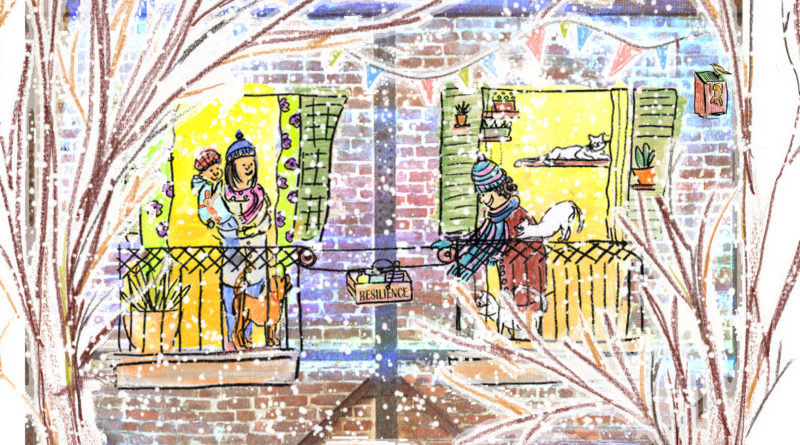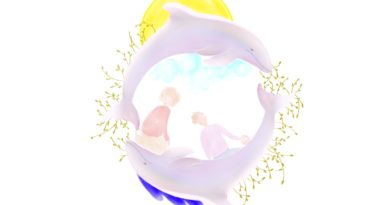What is Resilience?
Monica Shah Zeeman interviewed Jaron Bernstein about resilience in January 2021. Jaron has been working with adults with a wide range of backgrounds and challenges for over 25 years.
Resilience is the psychological ability to not be unduly changed or even broken by stressful circumstances. Resilience is not an individual personality trait; I would describe it as an ability that manifests itself in behaviour. It is a result of the interaction between the individual and her or his environment. Several protective factors help us overcome stressful and adverse experiences and promote the development of resilience under unfavourable conditions.
Bonding with others, neighbours and friends to break out of isolation maximises resilience.
COVID-19 has led many families to limit their mobility, perhaps afraid to travel or reducing their contact with friends. Take a look at your direct social environment. In this regard, the experiences of relocated families and local families became more similar than before. In times of crisis, it is important for all families to strengthen mutual empathy and a sense of belonging, and to activate individual resilience in such a way that independent action is guaranteed and respected. Overcoming crises strengthens and deepens relationships and gives you a common experience together.
Social factors are most important in resilience.
There are social factors that are certainly important for families. The first one is the availability of social support, which means ensuring stable and trusting relationships with caring persons – this is important for the development of children as well as for the lives of adults. A particularly positive influence of support is promised by relationships with people who are exposed to the same adversity. So nurture old and new meaningful relationships and stay socially active – if you can’t personally meet, use video chats with friends and family to share your thoughts and feelings and to learn how others deal with similar situations.
The second social factor is taking responsibility for others and becoming involved in your family and community. These actions strengthen the sense of belonging to the social environment. They promote the search for positive solutions and the ability to help oneself and subsequently exhibit greater resilience.
The third social factor is the way our role models (such as parents, teachers, supervisors, counsellors and therapists) cope with adverse circumstances. Particularly during the peak of a crisis, the opportunity to be guided by a positive role model contributes significantly to resilience. Some of us have positive role models, and as parents or managers, many of us are role models for others.
In times of stress, someone in the family needs to have a sense of humour. Do you agree?
Humour is a most valuable protective factor for the development of resilience. The ability to laugh about a situation allows us to take a step back and helps us gain a healthy distance from the difficult circumstances we confront. Being able to laugh together can also endorse positive emotions and strengthen social bonds between people sharing a similar adverse experience.
If I may ask, what is your own resilience based on, in your opinion?
First, an optimistic attitude toward life and the tendency to isolate stressful situations and negative emotions, thus putting them into perspective and mitigating them. I also try to concentrate on positive emotional experiences during difficult situations, which facilitates the pursuit of new creative thoughts and courses of action. Another factor, which I personally experience as important, is high enough self-esteem and self-expectations, which can create a positive self-fulfilling prophecy regarding one’s ability to deal successfully with adverse circumstances.
Amongst your clients, what do people report as the main stress factors from working at home? What are the problems and how are clients managing to work round them?
Many of my clients working at home find the fusion of work and family life around the clock stressful, as they are increasingly torn between different and sometimes even competing expectations, tasks, and timetables. Another challenge for people working at home is the working relationships with employees, peers and executives, who also experience new and sometimes difficult circumstances, and are mostly online for long stretches of time. In both cases, the way to successfully deal with these challenges is to be aware of your own behaviour and understand the behaviour of others; explore constructive solutions and shape personal relationships. A crisis is also a chance to strengthen relationships by adapting together to a new reality.
In this scientific age, many people have abandoned religion. Does that make life more stressful in your experience?
I am not an expert on society and religion, but it seems to me that religion and spirituality still play an important role for many people, if in a more intimate or personal and less organized way. Interestingly, scientific research shows the positive influence of participation in religious and spiritual life on mental and physical health. Some religions have clear restrictions on smoking, alcohol consumption, excessive eating, and use of illegal drugs. Some religions provide access to increased social support and encourage social engagement. Religious and spiritual people tend to perceive and experience certain things in their lives as important, meaningful, and comprehensible. This can provide emotional stability and strength in difficult times.
By Jaron Bernstein
Jaron has lived in Switzerland for 20 years; he previously lived in Germany and grew up in Israel. He is an executive coach and a sparring partner, helping managers to deal with internal and external demands so they make better decisions. He is married and father of two girls aged five and eight. jaron@bernstein-consulting.ch
Illustration by Lemady Rochard
Lemady is a British artist and illustrator living near Einsiedeln. Her first illustrated book The Little Mermaid’s Son by Annahita de la Mare was published in December 2020 and is available on Amazon. She also runs Storycraft classes and parties for children at the Storycraft Studio in Rüschlikon, ZH. She has a background in theatre arts and children’s literature. More information & contact details on her website http://www.lemady.ch
Facebook: http://www.facebook.com/lemadyart
Instagram: http://www.instagram.com/lemady_art



